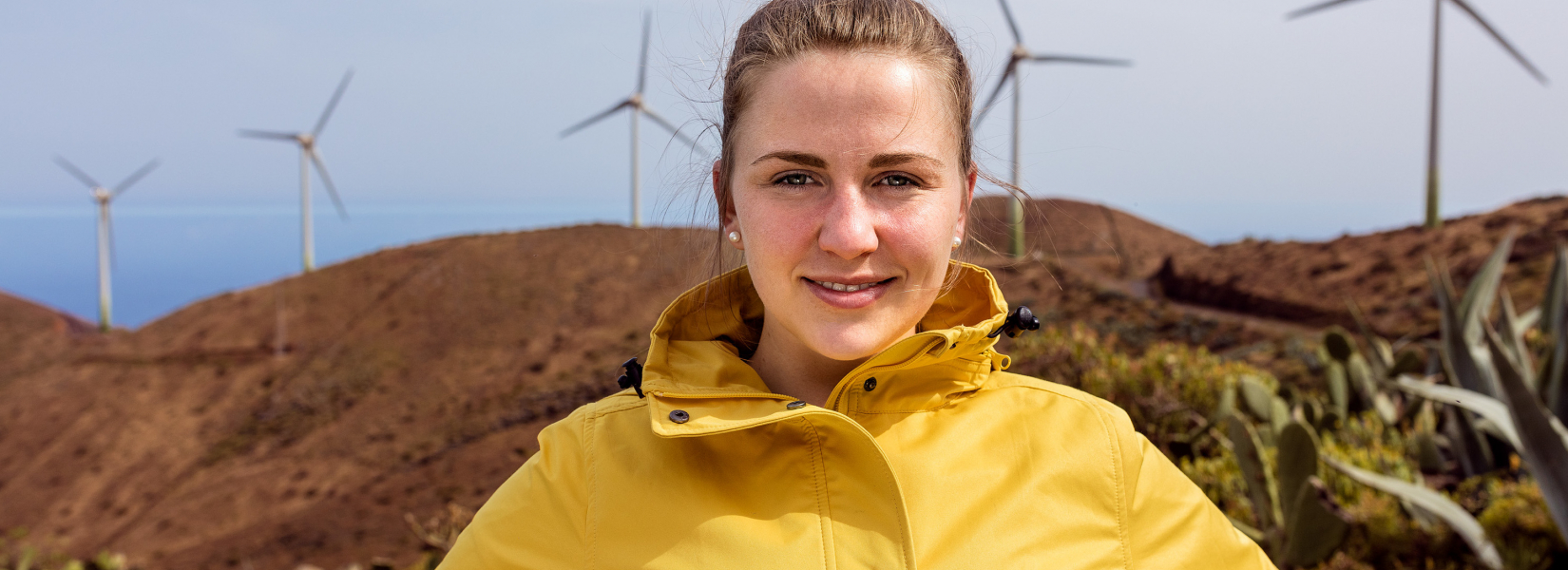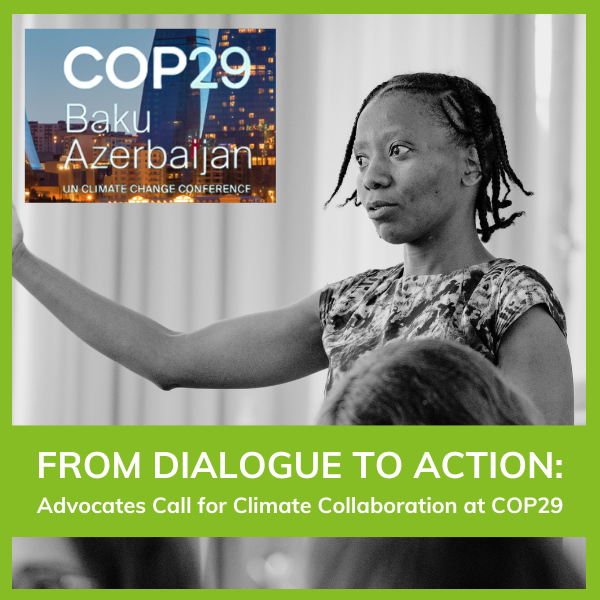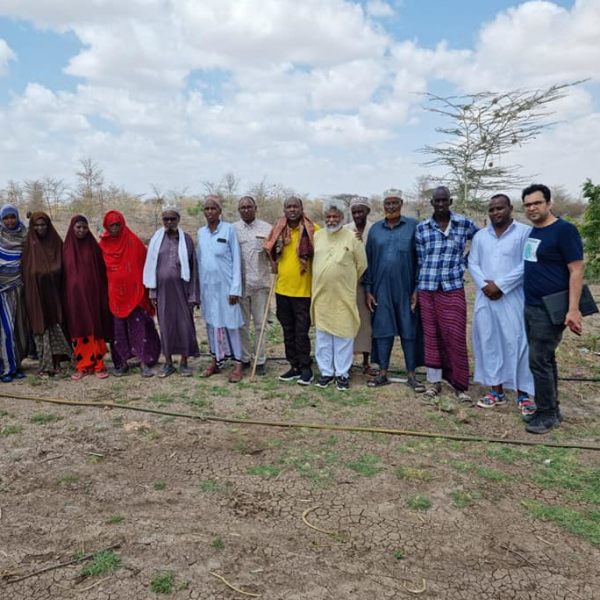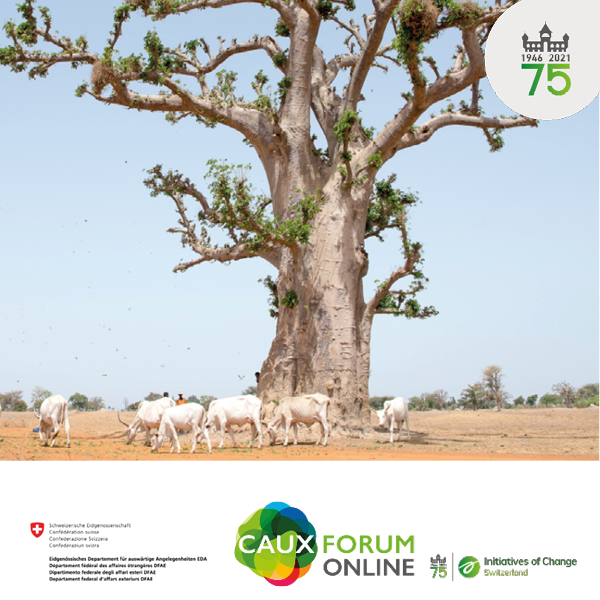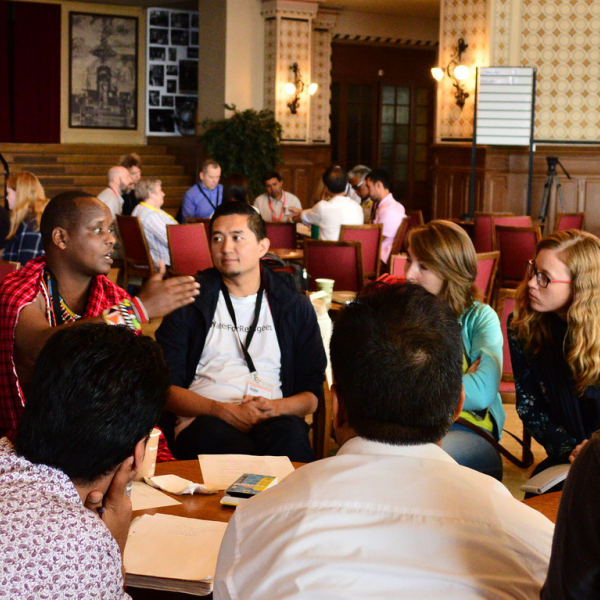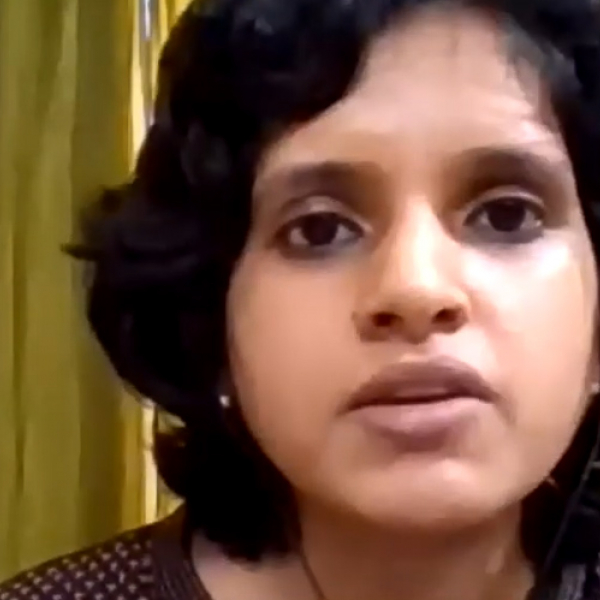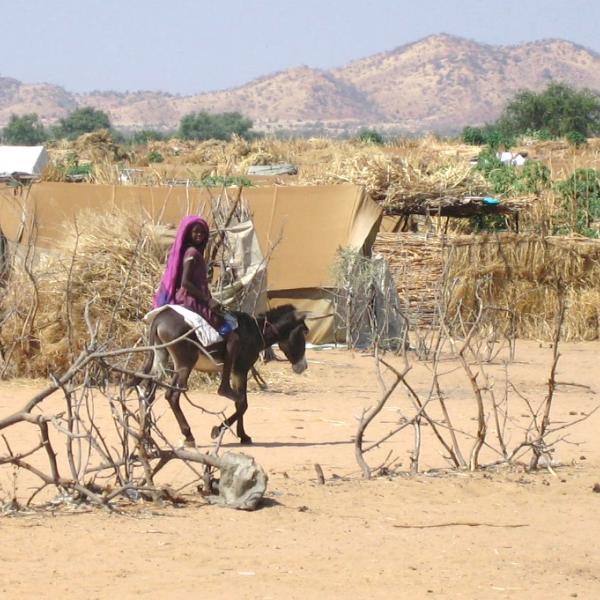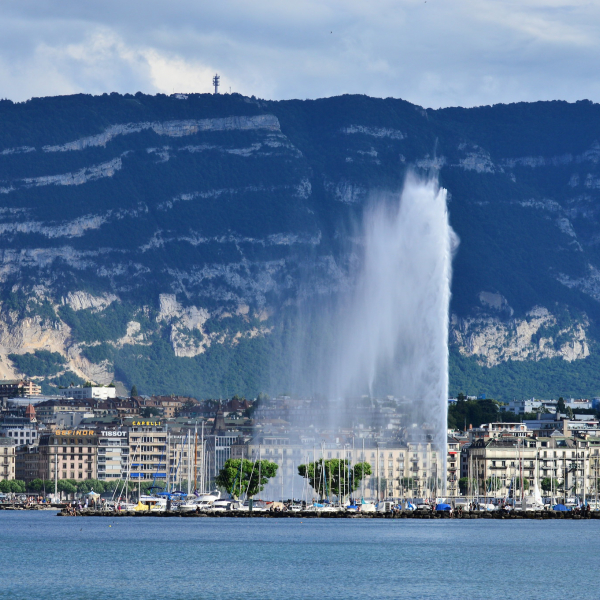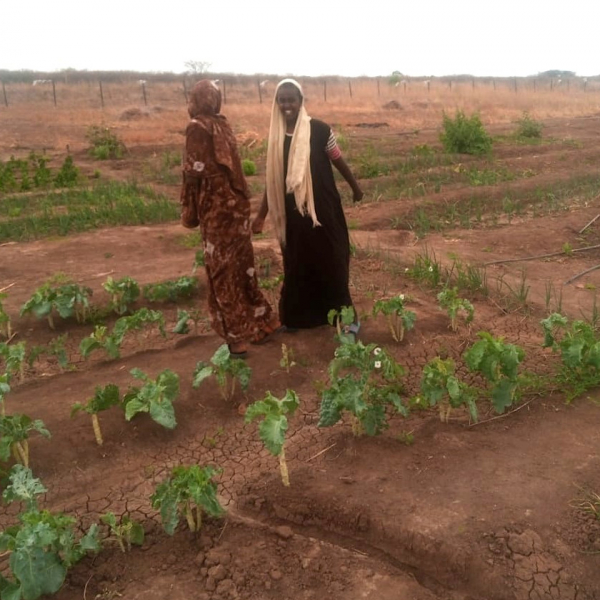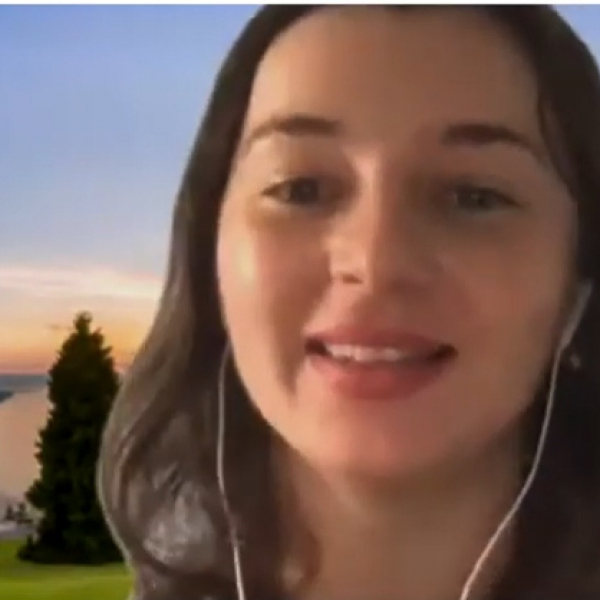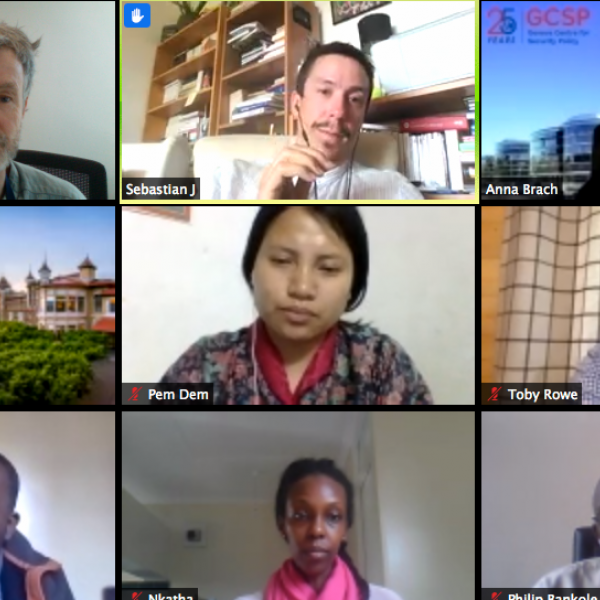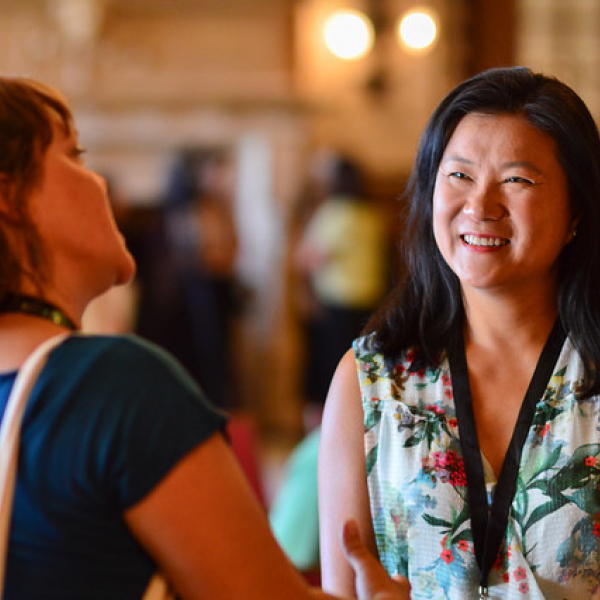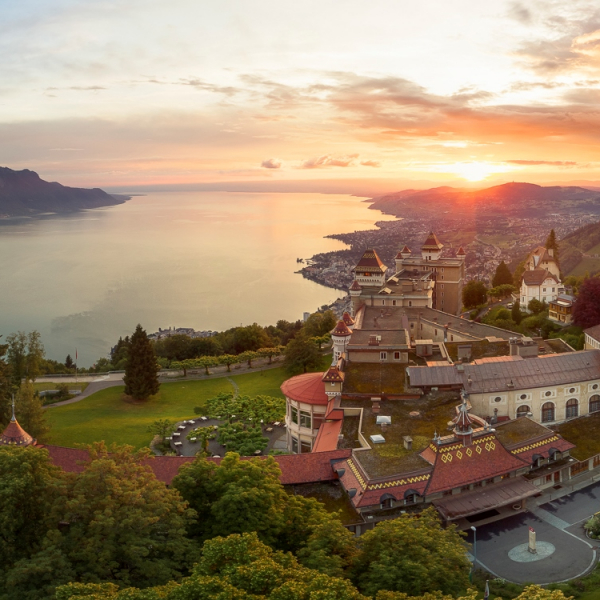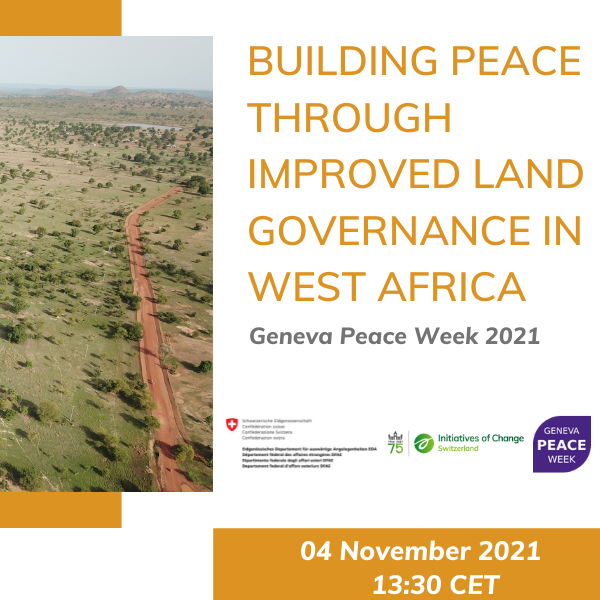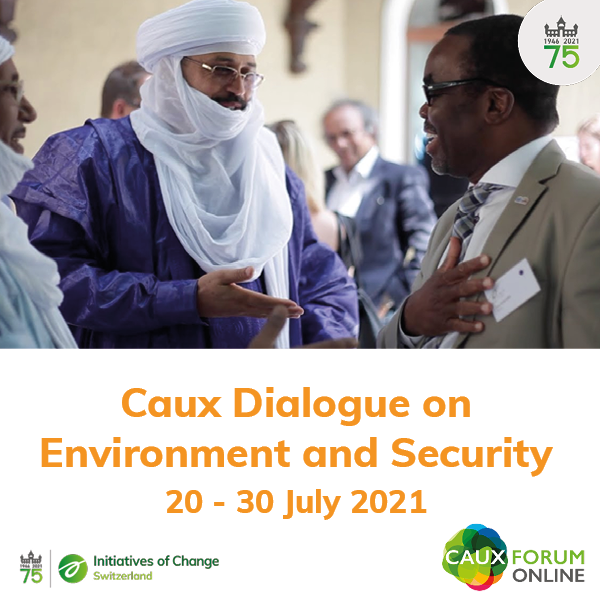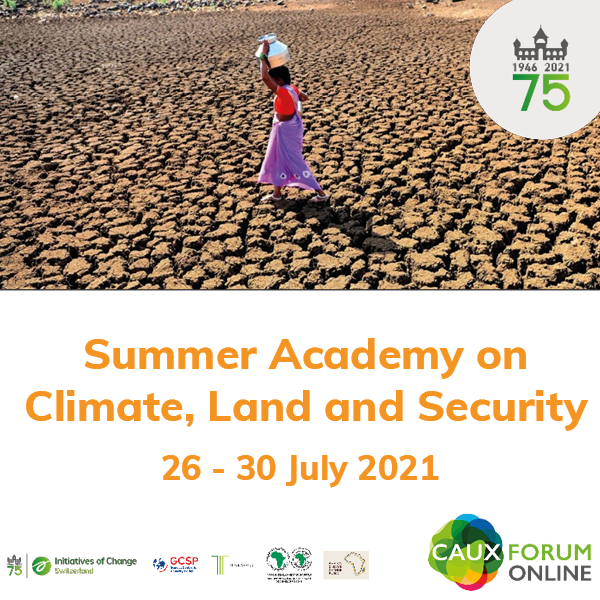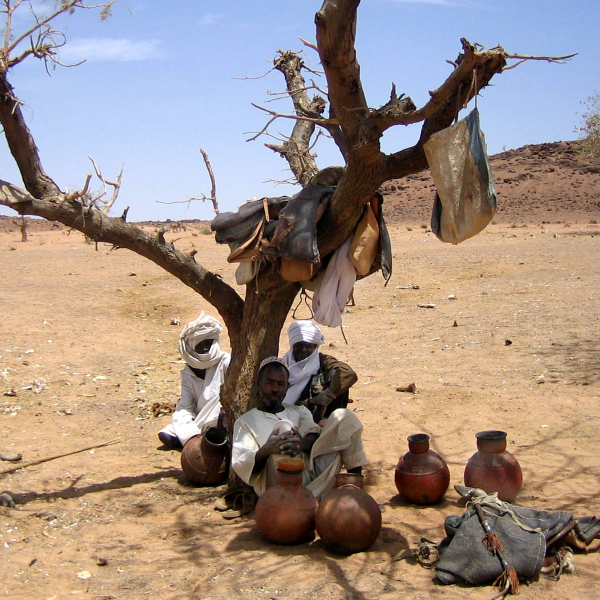Raising a voice for the future
Interview with Rebecca Freitag, German UN Youth Delegate for Sustainable Development 2017 - 2019
29/06/2020
Rebecca Freitag (28) lives in Berlin and studies Integrated Natural Resource Management. She has been to the Caux Forum many times with her family, and in 2012 she was part of the Caux Interns Programme. She was the German UN Youth Delegate for Sustainable Development from 2017 to 2019, promoting her generation’s concerns about sustainability at the United Nations.
Rebecca, your two years as Germany‘s UN Youth Delegate were packed with encounters and new experiences. How would you describe this time in five keywords?
#FridaysforFutureInternational
#Utopias
#MerkelSelfie
#smallactionsmatter
#changeisnow
What motivated you to apply for this mandate and what did your work consist of?
I think that political decisions are made on too short-term a basis: they are not sustainable. Young people and future generations have to live with the consequences but are hardly given any say in today’s decisions. Germany's UN Youth Delegate for Sustainable Development is one of the few institutional offices for young people that can help shape national and international policy-making. I understood my job to be a voice for a sustainable world.
As an official part of the German governmental delegation to the UN conferences on sustainable development, my fellow youth delegate and I carried our generation’s position into national and international politics.
This position was based on many encounters with young people in Germany. Throughout the year I spoke in schools, at scout camps and in lecture halls about the 17 UN Sustainable Development Goals (SDGs) and how we can only achieve this transformation if we are united. It was my task to present the wishes, criticism and questions of those young people to the UN – and also the actions they had implemented. I was able to show that we young people are already working on our transformation on a small scale. For the big structural changes, we called on today's politicians to make courageous decisions.
Which encounters or experiences from this time have impressed you the most?
My encounters with young women from the global South were particularly inspiring and encouraging. In spite of the many limitations they face, they are the ones who promote sustainability in their communities. The former President of Ireland, Mary Robinson, once said to me: ‘Climate change is a man-made problem which needs a feminist solution.’
I believe that we need to take more balanced decisions about the future: a better balance between gender, between generations and between regions.
Visiting activists from Fridays for Future in Kenya and Brazil was also very formative. These young people face much more urgent problems than we do in Europe – such as issues around education, violence and political leadership. But, in spite of security concerns, they take to the streets to call for action on climate change. This demonstrates both our privilege and also our responsibility towards these people. The consequences of climate change are felt very strongly in these countries and the roots can be found in our lifestyle.
It was also exciting to see how the attention to the concerns of my generation at official events increased when the Fridays for Future protests started. This proves that our generation’s combined action on the streets is worthwhile – that active intervention catches society’s attention (even if the results may still not be adequate).
You are a climate activist, you are the co-founder of the FahrradBande working group on mobility and you were present at the Fridays for Future demonstrations in New York. How do you apply environmental sustainability in your own everyday life?
I try small changes that we can all implement: I use my bike, eat plant-based nutrition, try to consume less, share more and so on...
However, as there are limits in what we can do in everyday life, major structural changes need to be initiated on a political level, such as creating an infrastructure for sustainable mobility for everyone, imposing higher fines for polluting, integrating closed-loop thinking into businesses, measuring contributions to the wellbeing of society and the planet instead of GDP.
When I broke my hand at the end of my term of office, I came to another realization: during the exciting but stressful time as a UN Youth Delegate I hadn’t used my own personal resources in a sustainable way. My injury was very painful and suddenly my daily routine became so much slower. That was a good thing.
How sustainable and healthy are we in relation to our own lives, our neighbours and the environment? I believe that once we have corrected this relationship we will see policies on a global level that don’t contradict our human existence.
Trustbuilding, ethical leadership and sustainable living are at the heart of IofC’s work. How have IofC's values influenced your life?
My father used to work fulltime for IofC and as a child and teenager I often went to Caux. The encounters there with people from all over the world, and hearing their stories built the foundations of my cosmopolitanism, tolerance and striving for global justice.
At Caux I often heard people say that change begins within ourselves. This is especially true for the transformation needed for a sustainable world. I will continue to raise my voice for those who are rarely heard: young people, future generations and nature.
The COVID-19 crisis has changed our world a lot. What have you learnt from lockdown?
Alongside the suffering it has brought, the virus has also done us the service / had the merit of removing superficial concerns and making us focus on what is essential in life. We start to realize, that we can also live along with less; less flying, less consumption, less distraction. At least for me, I appreciate things which seemed unimportant to me before the pandemic: community, honest caring for others, being able to get out into nature. I hope that we will not lose this feeling and that it will make it easier for us to undertake innovations for a sustainable future.
Interested in more? Read Rebecca's " A Letter to Future Generations"
Interview: Ulrike Ott Chanu
Photos: Kristoffer Schwetje Photography
